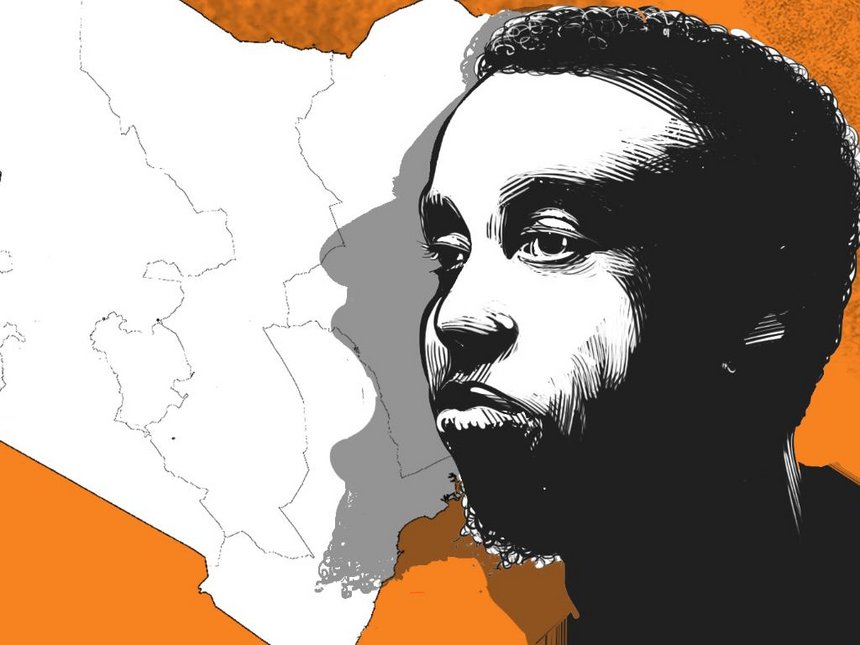KIBE MUNGAI: Kenya must safeguard coastline

Since the overthrow of Mohamed Siad Barre’s government in 1991 and the subsequent civil war the Federal Republic of Somalia (FRS) has been and remains a failed state. As a seasoned failed state the FRS has lacked administrative, policing and military capacity to exercise effective sovereignty over its land and sea terrorists leading to large swathes of its land in the hands of Al Shabaab and other territories not to mention pirates over its 3000 km long coastline. On a human level over three million Somalis have officially and unofficially ran away from Somalia and the vast majority have founded new homes in Kenya.
Paradoxically, in August, 2014 this failed state was fit and conscious enough to file a case before the International Court of Justice at the Hague concerning a dispute in relation to “the establishment of the single maritime boundary between Somalia and Kenya in the Indian Ocean delimiting the territorial sea, exclusive economic zones and continental shelf, including the continental shelf beyond the 200 nautical miles”.
The gist of the Somalia vs. Kenya maritime dispute is that Somalia wants the maritime border to run diagonally as an extension of the land boundary while Kenya wants it to run parallel to the latitude, eastwards, South of Kyunga. Whatever the technical merits of these arguments might be, three things are worth noting for this commentary. First, Kenya’s proposal for the boundary to run parallel to the latitude eastwards accords with the delimitation of maritime boundaries on the Indian Ocean coastline in relation to Tanzania, Mozambique and South Africa. Secondly, whilst Kenya’s Coastline is 536 km, Tanzania’s Coastline is 1521 km whilst Somalia Coastline is 3333 km which is the longest in Africa.
Thirdly, in the probable event of Somalia winning the case Kenya will lose to Somalia 26 per cent (51,105 km2) of its Exclusive Economic Zone (EEZ) and 85 per cent (95,320 km2) of the continental shelf beyond 200 nautical miles. In effect, both Kenya’s and Somalia’s continental shelves with share a boundary with Tanzania’s continental shelf. In other words Kenya will be rendered virtually landlocked despite having over 500 km Indian Ocean coastline. This is a scenario that is not only unacceptable but should not depend on the decision of the ICJ.
Strictly speaking the sharing of the world’s marine resources has historically been more of a function of power (economic, military, political and diplomatic) than law. The islands of Guam and Puerto Rico are US territories thanks to its power than any logic or decision of an international tribunal; Falkland’s islands are about 13,000 km from Britain and only 1,500 km from Argentina but the United Kingdom exercises sovereignty over them precisely because Britain is a greater naval power than Argentina of which the 1982 Falklands war is a testament.
Aware of these realities of power China has staked its long time ambition to turn the South China Sea into a “Chinese lake” on building a powerful navy and economic dominance over his neighbours with competing claims. In fact, in July 2016 the ICJ in the case of Philippines vs. China decided in favour of Philippines, China rejected the arbitration award and in acknowledgement of de facto power realities Philippine President Rodrigo Duterte has indicated that China and Philippines might enter bilateral talks to resolve the dispute. This is the route Kenya should follow.
In my view Kenya must do all it takes to force Somalia to drop its claims over our limited maritime resources and make it clear that any probable Somalia victory at the ICJ will be deemed illegitimate unless and until Africa’s Indian Ocean coastline is demarcated afresh to give Kenya a share of the ocean proportionate to the size of its coastline. It goes without saying that Kenya will have to enlarge its military and naval capabilities otherwise it might contend with this injustice forever.
Lest I am misunderstood let me clarify that as a lawyer I support the need to comply with decisions of judicial bodies but I reckon it would be naive to disregard the imperative of power in sharing of maritime resources and the political nature of decisions of international law tribunals. As a case in point the ICJ consists of 15 judges. All the five permanent members of the UN Security Council namely US, China, France, Britain and Russia have always been represented by one judge each. Presently, Africa has three judges from Uganda, Morocco and Somalia’s Abdulqawi Ahmed Yusuf who happens to be the current President of the Court.
Equally, significant is that Somalia filed its case against Kenya in circumstances that compel the conclusion that it was acting as a proxy of various European and Middle Eastern states. Considering now that transnational mining companies prefer dealing with failed states to stable states Somalia has a headstart over Kenya at the ICJ because with empty offers it is likely to auction the oil and gas blocks more cheaply and in the foreseeable future it will not have effective capacity to known how much resources would be funnelled out of the disputed areas.
Finally, it is surprising that Somalia and its local supporters are saying Kenya has adopted an aggressive attitude towards it. In all fairness Somalia should stop assuming every Kenyan is naive simply because some Kenyan buffoons have been incited by Al Shabaab to turn against their country. It is well known that over 50 per cent of Somalis in Nairobi are recent immigrants from Somalia and the Somali population has been rising faster on the Kenyan side of the land boundary.
Unless Somalia stabilises within the coming decade there may be more Somalis in Kenya than in Somalia. The point here is that if Somali’s over 3,000 km coastline is the common heritage of all the Somali people, it must be supposed that Kenyan Somalis have a share of it. At the very minimum, this would require the FRS to drop its case against Kenya in order to maintain the brotherly relationship between our countries. In this connection, the leaders of Kenya Somali and noisemakers among them should start proving their patriotism a little bit louder by publicly demanding of their cousins to leave Kenya alone.
Source: https://www.the-star.co.ke/news/2019/02/27/kibe-mungai-kenya-must-safeguard-coastline_c1900568
